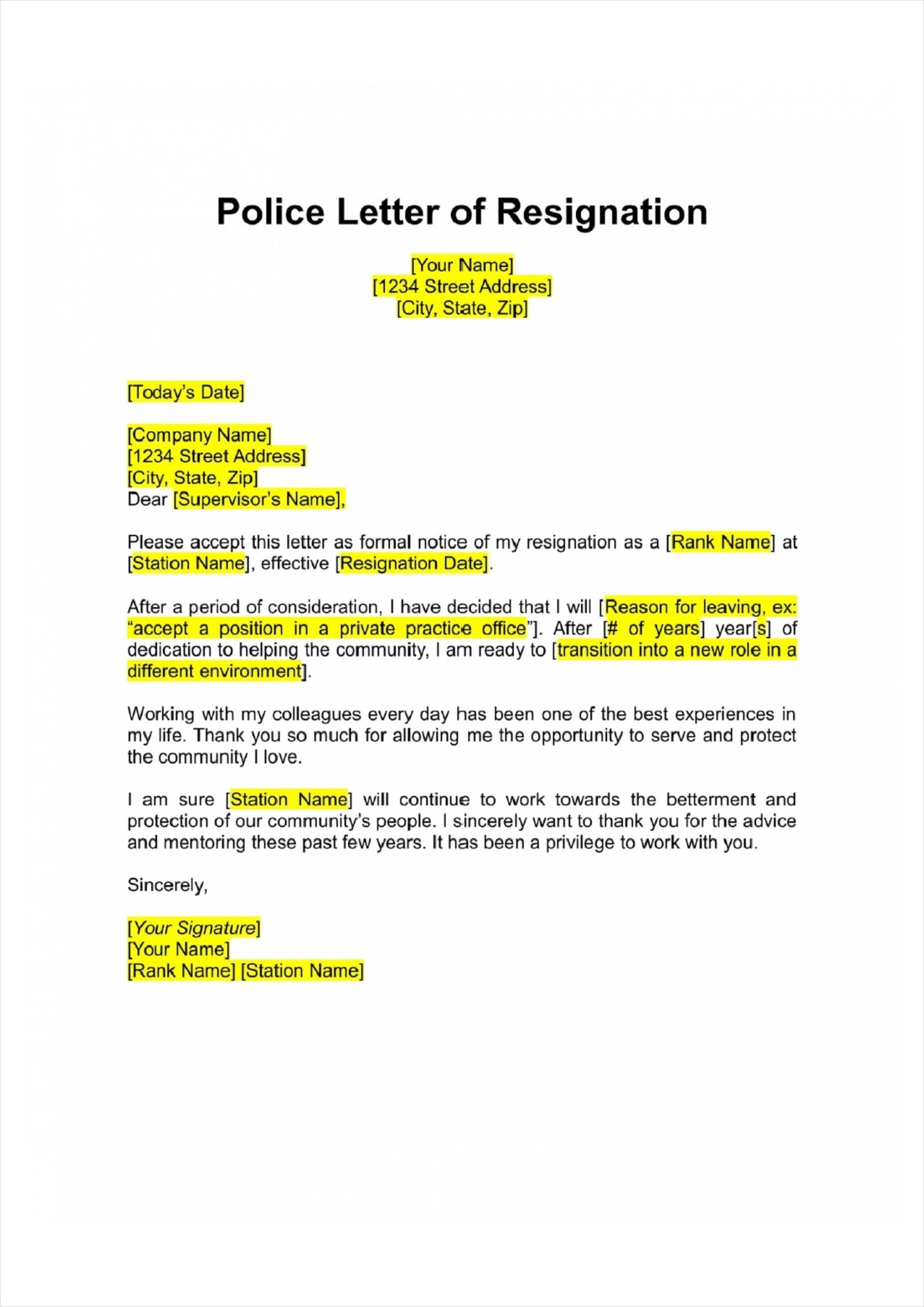
Resigning from a law enforcement position can be a difficult decision that requires careful consideration and planning. Whether you are leaving due to personal reasons, career advancement, or a desire for change, it is important to submit a formal resignation letter to your superiors. In this article, we will explore what a law enforcement resignation letter is, why you need one when to submit it, and how to write it effectively.
What is a Law Enforcement Resignation Letter?
A law enforcement resignation letter is a formal document that informs your superiors and colleagues of your decision to leave your position within a law enforcement agency. It serves as a professional courtesy and allows for a smooth transition of responsibilities. This letter should be concise, respectful, and include important details regarding your departure.
Why Do You Need a Law Enforcement Resignation Letter?
Submitting a resignation letter is a professional and ethical obligation when leaving any job, including a role in law enforcement. Here are a few reasons why you need to write a law enforcement resignation letter:
- Formal notification: A resignation letter serves as an official document that notifies your superiors of your intention to leave the organization. It ensures that the appropriate individuals are aware of your departure and can begin the necessary processes for finding a replacement.
- Professionalism: Writing a resignation letter demonstrates professionalism and respect for the organization and your colleagues. It shows that you are leaving on good terms and are committed to maintaining a positive relationship even after your departure.
- Documentation: Keeping a record of your resignation is important for future reference. It can serve as proof of your departure date, which may be necessary for various purposes such as retirement benefits, references, or legal matters.
When Should You Submit a Law Enforcement Resignation Letter?
The timing of your resignation letter is crucial to ensure a smooth transition and maintain professionalism. Here are a few factors to consider when determining when to submit your law enforcement resignation letter:
- Notice period: Check your employment contract or agency policies to determine the required notice period for resigning. This is typically a specific number of days or weeks that you must give before leaving. Adhering to the notice period ensures that your organization has enough time to find a replacement and complete any necessary paperwork.
- Consider the workload: Assess the workload and upcoming projects within your department. If some critical assignments or events require your presence, it may be considerate to delay your resignation until after these commitments are fulfilled.
- Personal circumstances: Take into account any personal circumstances that may affect the timing of your resignation. For example, if you are relocating, starting a new job, or facing a significant life event, it may be necessary to resign sooner rather than later.
What to Include in a Law Enforcement Resignation Letter
A well-written law enforcement resignation letter should include the following elements:
- Date: Begin your letter with the current date.
- Addressee: Address the letter to your immediate supervisor or the appropriate authority within the organization.
- Salutation: Use a formal salutation, such as “Dear [Supervisor’s Name],” or “To Whom It May Concern.”
- Introduction: Start by stating your intention to resign and the effective date of your departure.
- Reason for resignation: Briefly explain your reasons for leaving, focusing on the positive aspects of your decision and emphasizing personal growth or career advancement opportunities.
- Express gratitude: Show appreciation for the opportunities and experiences you have had during your tenure in the organization.
- Offer assistance: If possible, extend your willingness to assist in the transition process or provide support to your replacement.
- Closing: End the letter with a professional closing, such as “Sincerely” or “Best Regards,” followed by your full name and contact information.
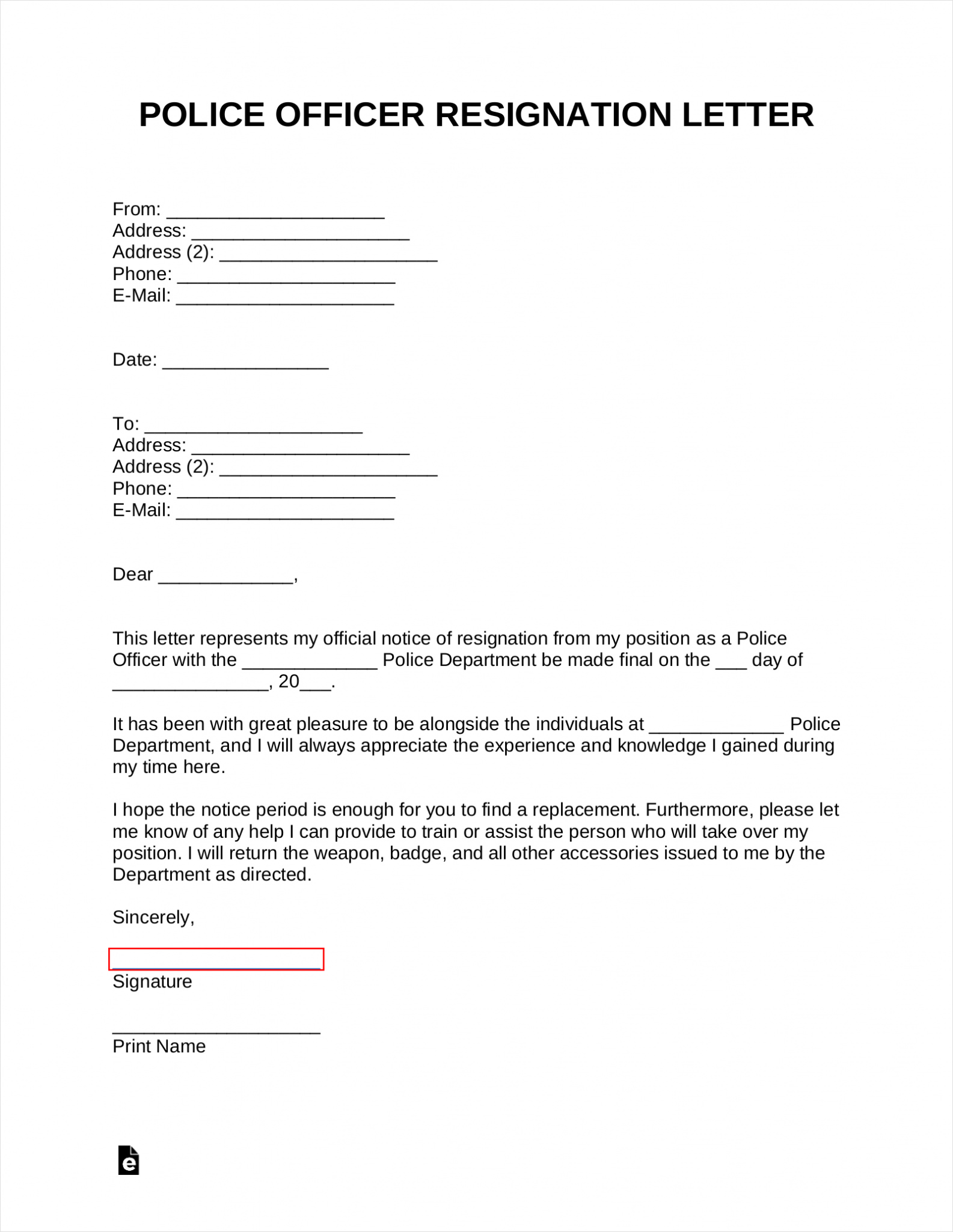
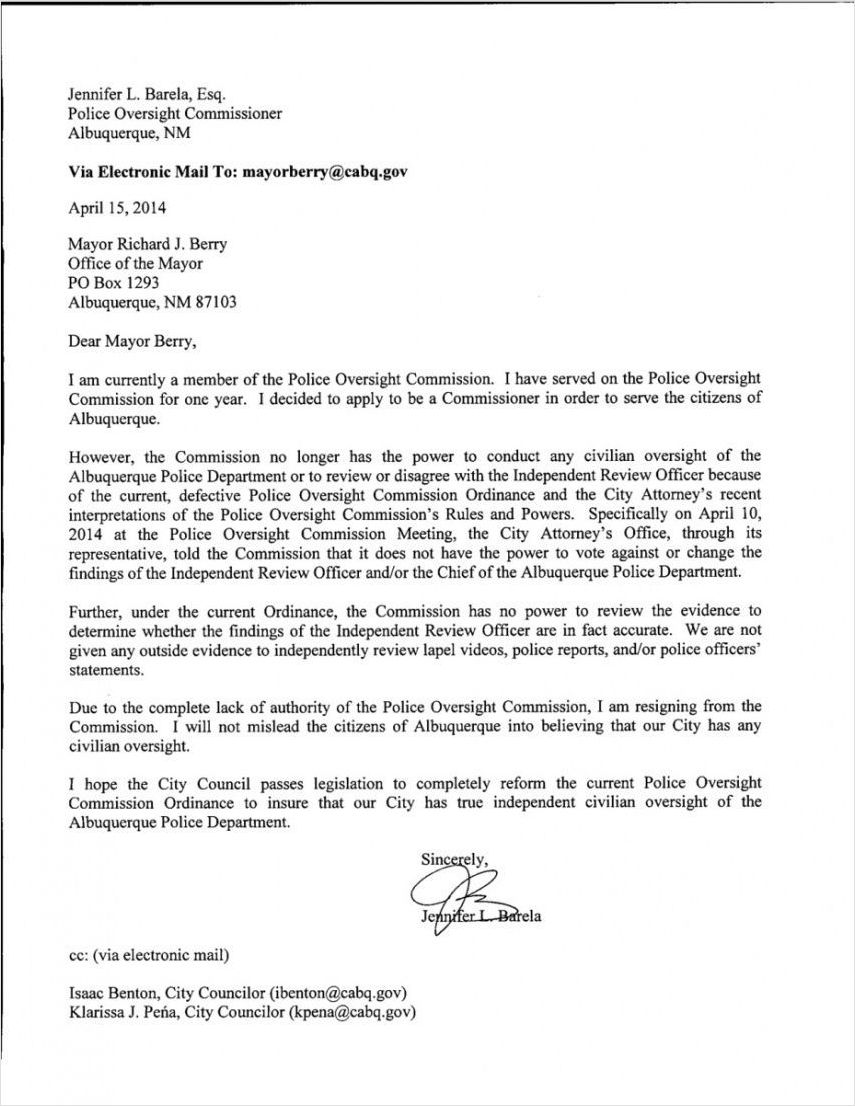
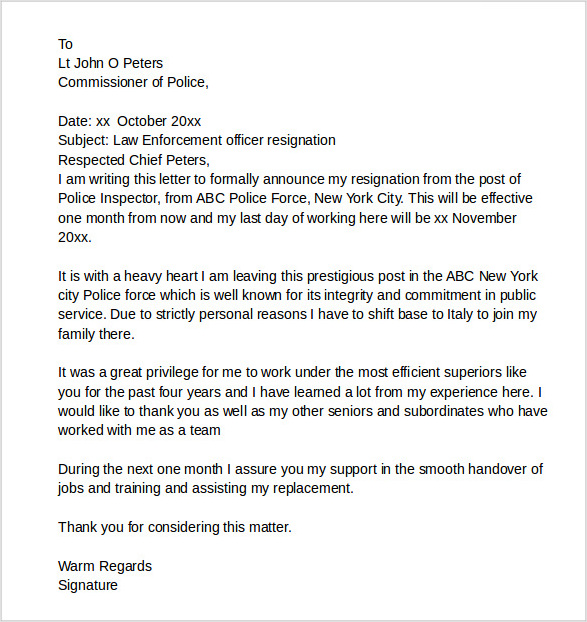
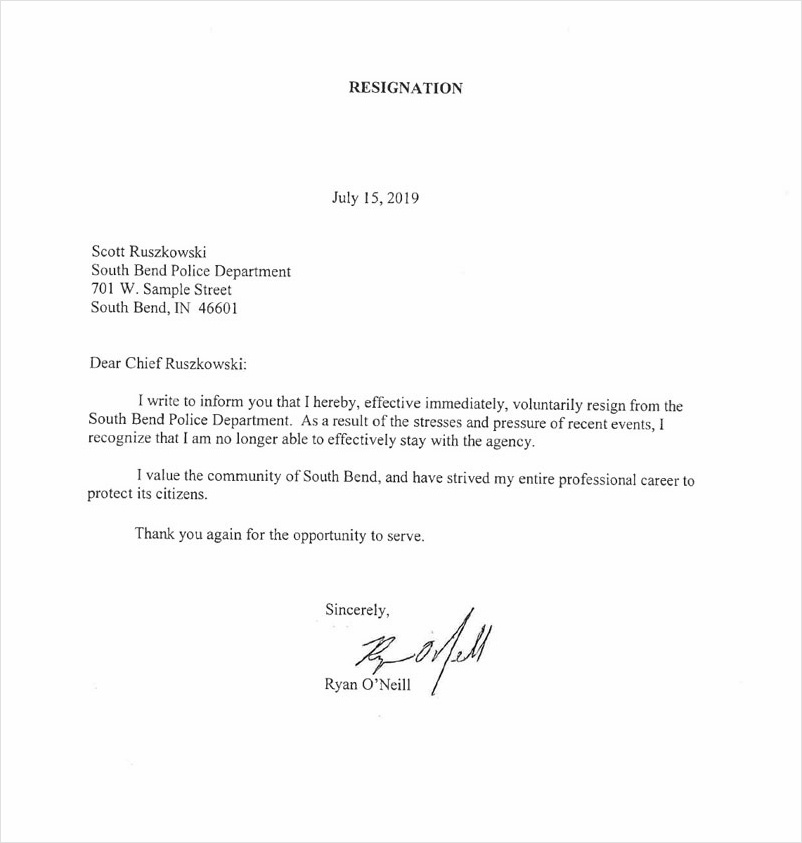
How to Write a Law Enforcement Resignation Letter
Writing a law enforcement resignation letter requires careful thought and attention to detail. Here are some tips to help you craft an effective letter:
- Be concise: Keep your letter brief and to the point. Avoid unnecessary details or negative comments. Focus on expressing gratitude and maintaining professionalism.
- Use a professional tone: Maintain a formal and respectful tone throughout the letter. Avoid using slang or casual language.
- Proofread: Double-check your letter for any grammatical or spelling errors. A well-written and error-free letter showcases your attention to detail and professionalism.
- Deliver in person: Whenever possible, deliver your resignation letter in person to your supervisor. This allows for a face-to-face conversation and demonstrates your commitment to a smooth transition.
- Keep a copy: Make sure to keep a copy of your resignation letter for your records. This can be useful for future reference or as proof of your resignation.
In conclusion, a law enforcement resignation letter is an important document that ensures a professional and respectful departure from your position. By following the guidelines outlined in this article, you can write a compelling resignation letter that maintains positive relationships and facilitates a smooth transition within your law enforcement agency.
Law Enforcement Resignation Letter Template – Download